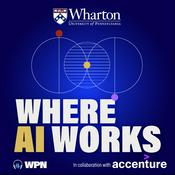It’s one of the world’s most iconic consumer goods companies, founded when America was still in the midst of the Industrial Revolution. Now, more than a century later, it’s on the frontlines of another massive transformation in the way we work thanks to the rise of artificial intelligence.
On this episode of Where AI Works, host Christian Terwiesch is joined by Alfredo Colas, the Chief Data and AI Officer at Procter & Gamble, to explore how the 188 year old company is reinventing itself yet again. With nearly three decades at P&G, Alfredo shares his unique perspective on embedding AI into innovation, from product ideation to smarter supply chains, while keeping humans firmly in the loop. You’ll hear how the company leverages AI to supercharge creativity — turning individual ideas into high-performing concepts — and how AI helps democratize knowledge, making decades of consumer insights instantly accessible to employees across the company. Their conversation also highlights the importance of human judgment in final decision-making, the evolving nature of work, and how AI can eliminate routine tasks to let employees focus on higher-value, creative problem solving.
Episode Highlights:
6:13 - Alfredo shares how AI is being used to enhance rather than replace P&G’s “secret formula” for gaining consumer insights about its products.
10:20 - Alfredo explains how P&G is leveraging AI to boost personal employee productivity, improve quality, and democratize knowledge.
18:23 - Alfredo discusses which aspects of work he foresees changing the most as a result of AI implementation.



